While gamers are discussing and playing through Baldur's Gate 3, I also want to talk about this one of the oldest and most interesting genres of computer games, about RPG. Yes, my favourite RPG is Baldur's Gate, but today is not about it, but about other games. Unlike RPG with isometric third-person view, I want turn to RPGs with first person view, moreover, not to modern first-person-slash-pew-pew-bethesda-style “games”, but to party-based, classic RPGs. Yes, good old party-based dungeon crawlers.

Here's how it was... I don't remember at all which game in this genre was my first. I'm inclined to think it was…
Ishar 3: The Seven Gates of Infinity
This is the third and final part of the Ishar series, developed by Silmarils. In this game, you also control a group of heroes, but this time you embark on a journey across the island of Kendoria to stop the evil wizard Shandar. Ishar 3 differs from its predecessors with a more open world and greater freedom of action. The game has many different locations, including cities, dungeons, and even other dimensions, as well as a variety of characters with whom you can interact.
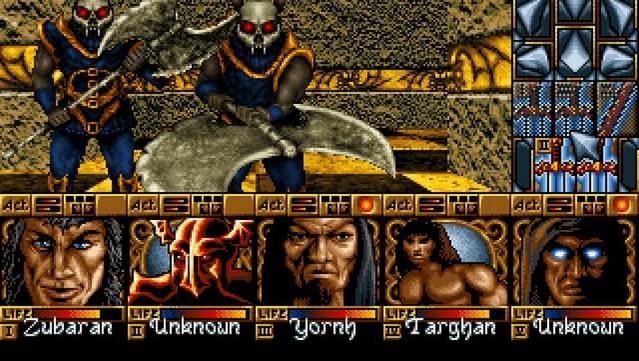
And all this I, as an 8-9 year old child was not very able to see because of the complexity of the game and the language barrier, but was impressed that among the other games that my father put on the 486DX66 computer, you could walk around the streets of the visual city, meet and talk to different characters, and going outside the city to crush monsters, however, already the second or third monster cut in cabbage all my team. But it was worth it! I've been gathering new and new teams from elves, dwarves, orcs and even dragonmen! Warriors and magicians!
While I was writing this paragraph, I thought that I was probably influenced more by another game. And it was...
Realms of Arkania 2: Star Trail
When I played this game for a first time, role-playing game world opened for me much wider - the adventure began in a cozy tavern, where for the heroes it was necessary to prepare for a full journey - to collect for them patches, sleeping bags, ropes, boilers, and not to forget about armor and weapons, to make a route on the map and go on a journey!
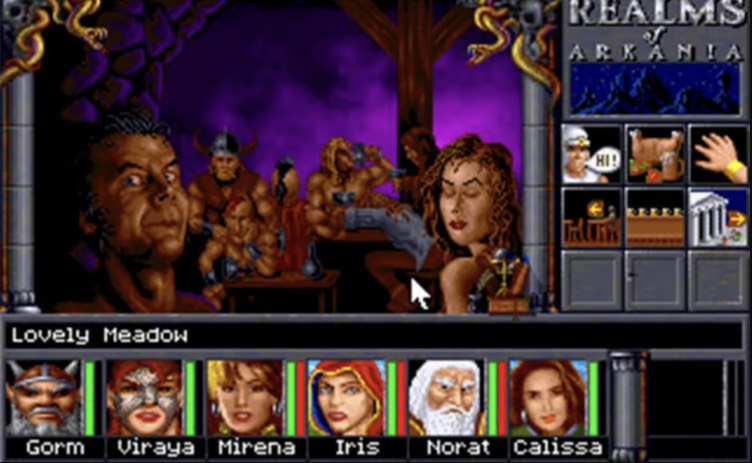
Usually my journey ended in the first forest, where the robbers cut off half of my crew, and the other half died of sickness and wounds, from the banal tetanus obtained from the scratch of the rotting nose of the bandit. But still I sometimes get to the dark dungeon of dwarves, where the real adventures and searches for mysteries began.
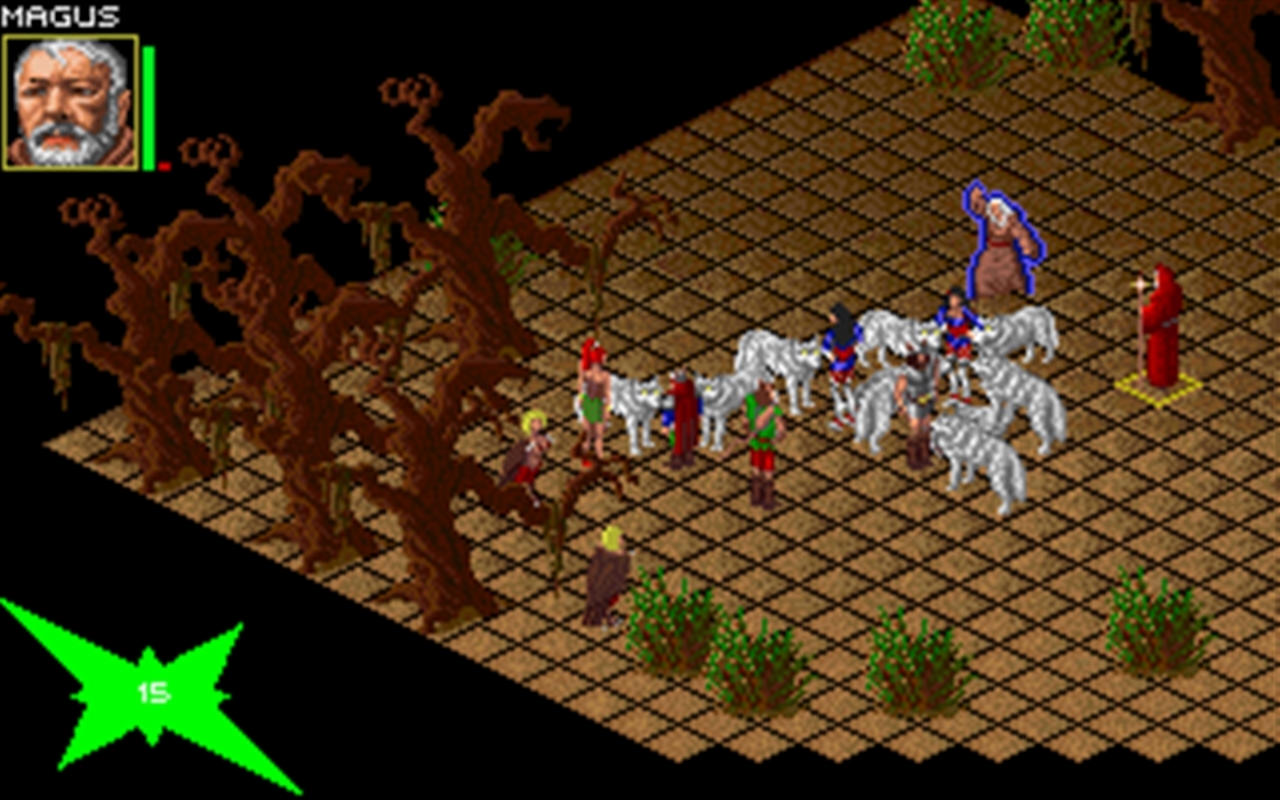
The case was also simplified by the translation into Russian. But, like many things with “professional translation”, half of the text still remained in English, which motivated me to reflect on the events, to study the language on my own, to understand why I still need and how to return the stolen salamander stone Vindaria Leechbronn in Lowangen.
Other minor games and tries
Most of the games, unfortunately, because of age and unfamiliarity of mechanics and non-native language I can't pass any hard I tried. But apart from Ishar 3 and Realms of Arkania I had also time to play in Stonekeep (what is technically not party RPG).
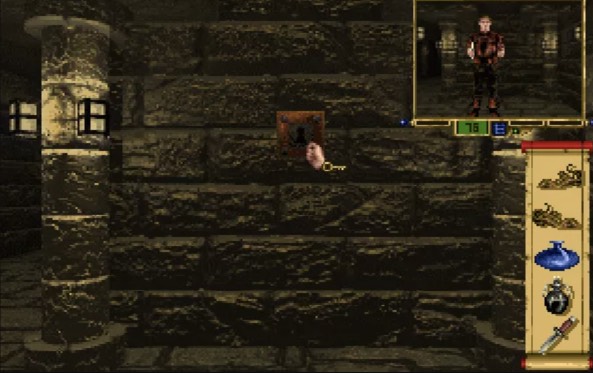
Same for Anvil of Dawn, but some companions may join your party.
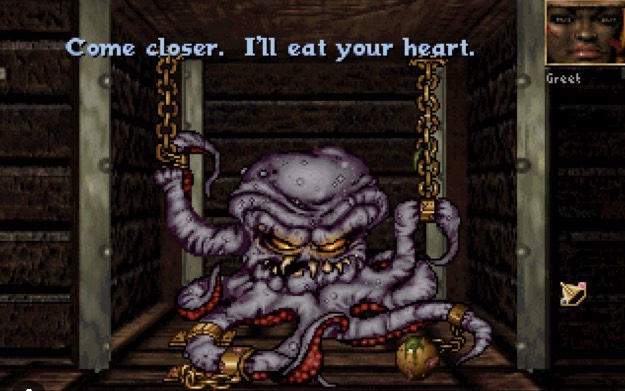
Colossal Lands of Lore (especially 4 CDs for third part), also, with joined companions.
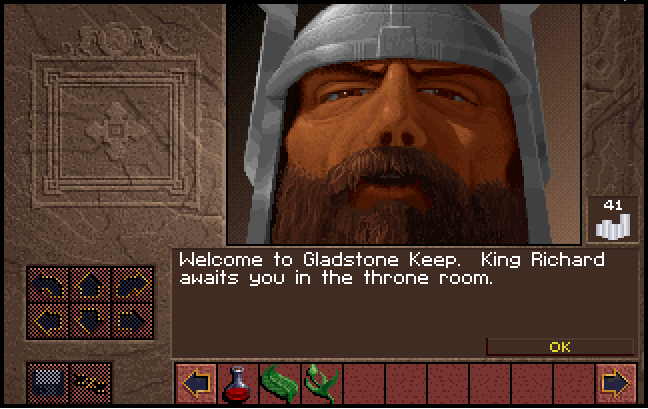
And even Robinson’s Requiem. The last game, for the sake of justice, in general one of the first in the world “survivals”. This is absolute hardcore game, where without clues you had to survive on an unknown planet, to cope with wounds, diseases and to deal with completely different flora and fauna.
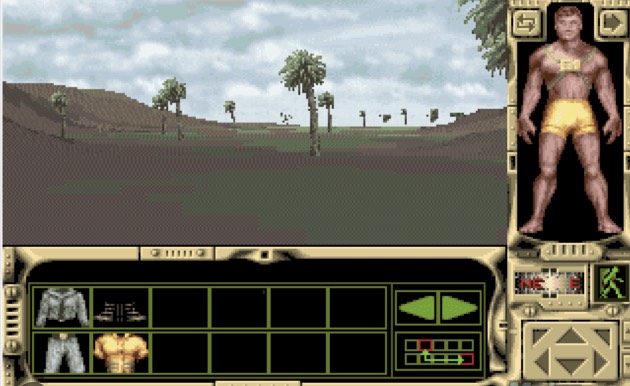
It was then a very bold branch of the RPG genre, and it was only almost two decades later that the genre flourished - from Stranded and Day-Z to Forest, Subnautica and other Long Dark-like games.
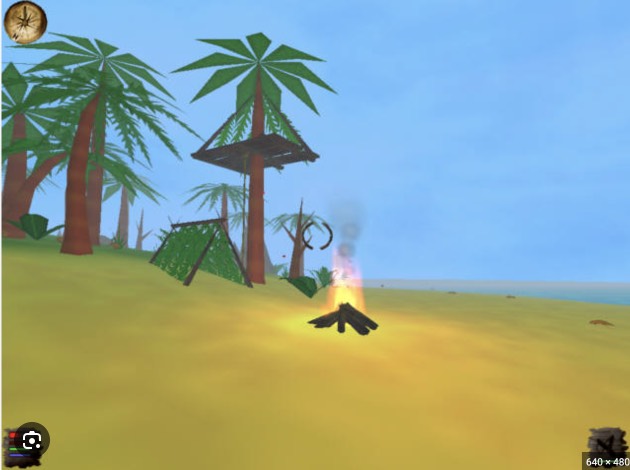
Historical reference
Dungeon Master is a first-person RPG game released by FTL Games in 1987. This game was revolutionary for many reasons. It introduced real-time instead of step-by-step gameplay, which was an innovation for the genre. Also in the game there was a complex system of magic, requiring players to memorize various runs to create spells.
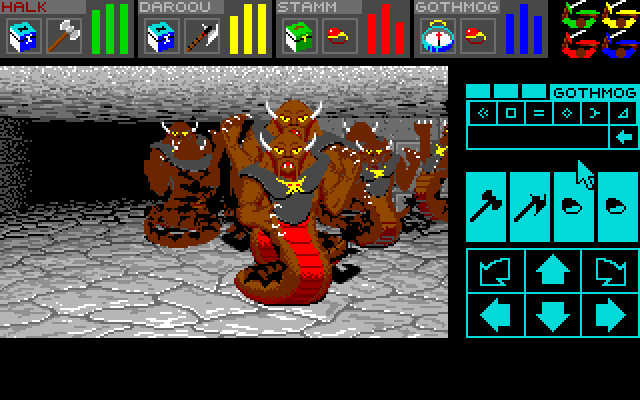
Dungeon Master also contributed to the development of the character management system. Instead of managing one character, players managed a group of four, each with its own unique skills and abilities. This added depth and complexity to the gameplay, requiring strategic thinking and planning from players.
Wizardry: Proving Grounds of the Mad Overlord was released in 1981. It was not a full-fledged first-person game, but it already contained elements of dancing-crawler, and it became the basis for many subsequent games in this genre.
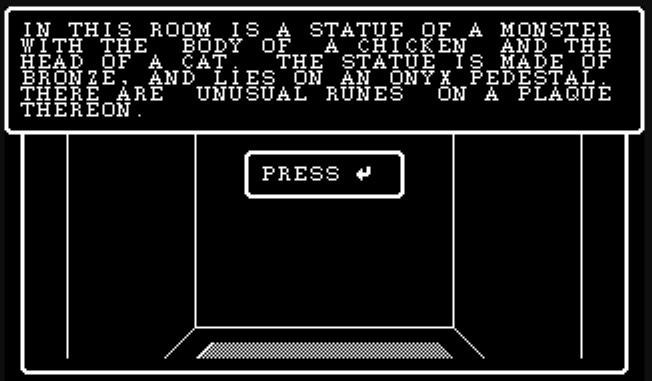
So, depending on which criteria we apply, you can consider first-person first-party RPG either Dungeon Master or Wizardry - Proving Grounds of the Mad Overlord.
Neither the first game nor the second game I played because of their age, and now they seem morally outdated to me to be playable. But I think I'll need a couple of evenings to get acquainted with the founders of the genre.
Moreover, running forward, I can say that, Wizardry 8, the heir to the very first Wizardry, in my opinion, is one of the best, if not the best game in this genre.
First successes
In the '90s, after a series of RPG games that impressed me, which, unfortunately, were still unsuccessful attempts to enter the genre on an equal footing with adult gamers, I fell out of the canvas for a few years and by the end of the 90s plunged into the absolutely dominant RTS genre.
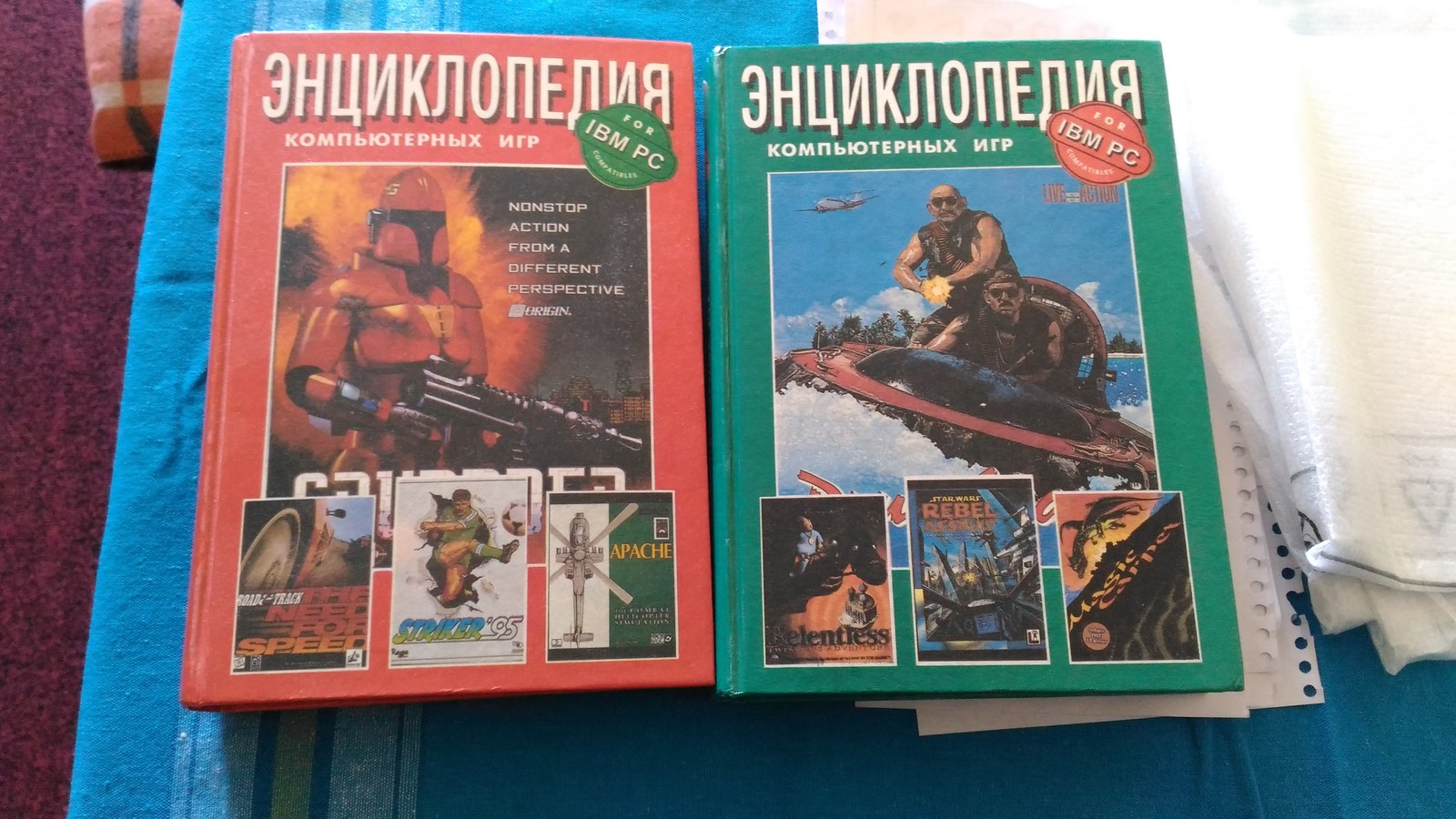
But since this is a completely different story, let’s go back to the late 90’s, when reading “The Great Encyclopedia of Computer Games” I stumbled upon a praiseful article with a detailed description of the game...
Eye of the Beholder
Maybe I would've passed the game if it weren't for TSR, Forgotten Realms. The game was about the same universe as the books I read from.
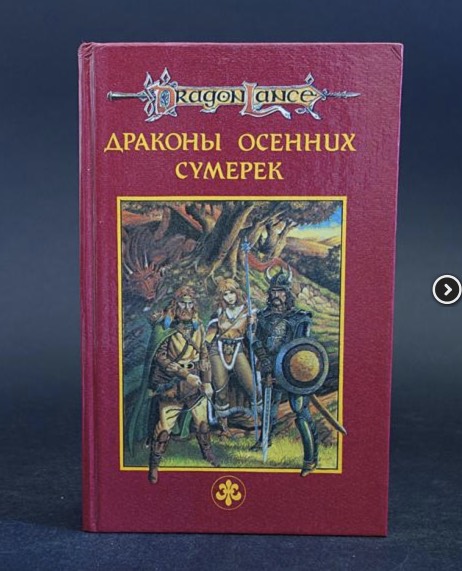
I was reading Dragon Lance, and I was admired by the amazing adventures, my magic, and the bravery of adventurers. And then the game promised to plunge into the dark underground of this universe. Could I stand it?
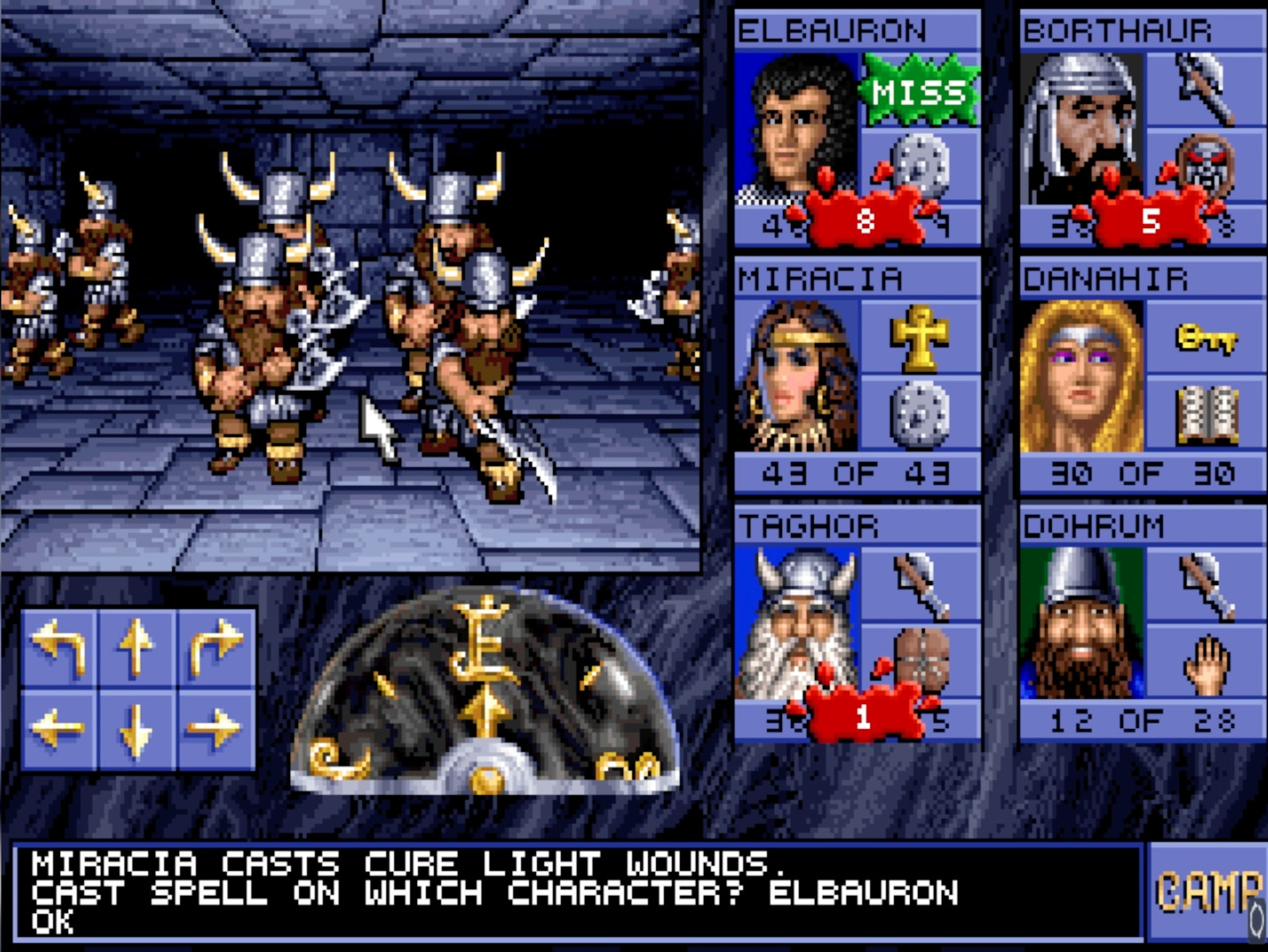
Generally speaking, Eye of the Beholder cannot boast a good plot, especially when compared to Ishar or Star Trail. The plot is as simple as a tail: “The evil is underneath the city - you need to go down and deal with it, do not come back until you figure it out”. Actually, the whole story. But since the game was made by developers from Westwood, the authors of my favorite series of adventure games - Legends of Kyrandia.
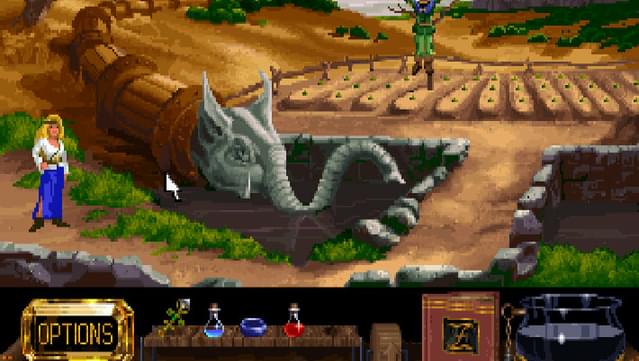
Just like in her wonderful point-and-click adventure, Westwood has been scrupulous about the details - a very beautiful and thoughtful interface, beautiful and oppressive, atmospheric underground, beautiful monsters, and most importantly - a lot of puzzles, often deadly and... the absence of the map, but the absolute need to draw it on paper. After all, each level was a real maze, from which it was difficult to find a way out.Nevertheless, the game fascinated me so much that, drawing the floor after the floor in a notebook in a cage, I went through all three parts, moving the team of travelers from game to game. Eye of the beholder was my first passed party RPG from the first person.

And,, remains one of the most favorite, putting in the idea of what the genre of smart dungeon crawler should look like. With the increasing complexity of puzzles, monsters, as well as the sensation of the strength of the heroes, first overcoming one Beholder’s, and then crossing entire castles with these creatures, in the hope of fighting with the ancient dragon.
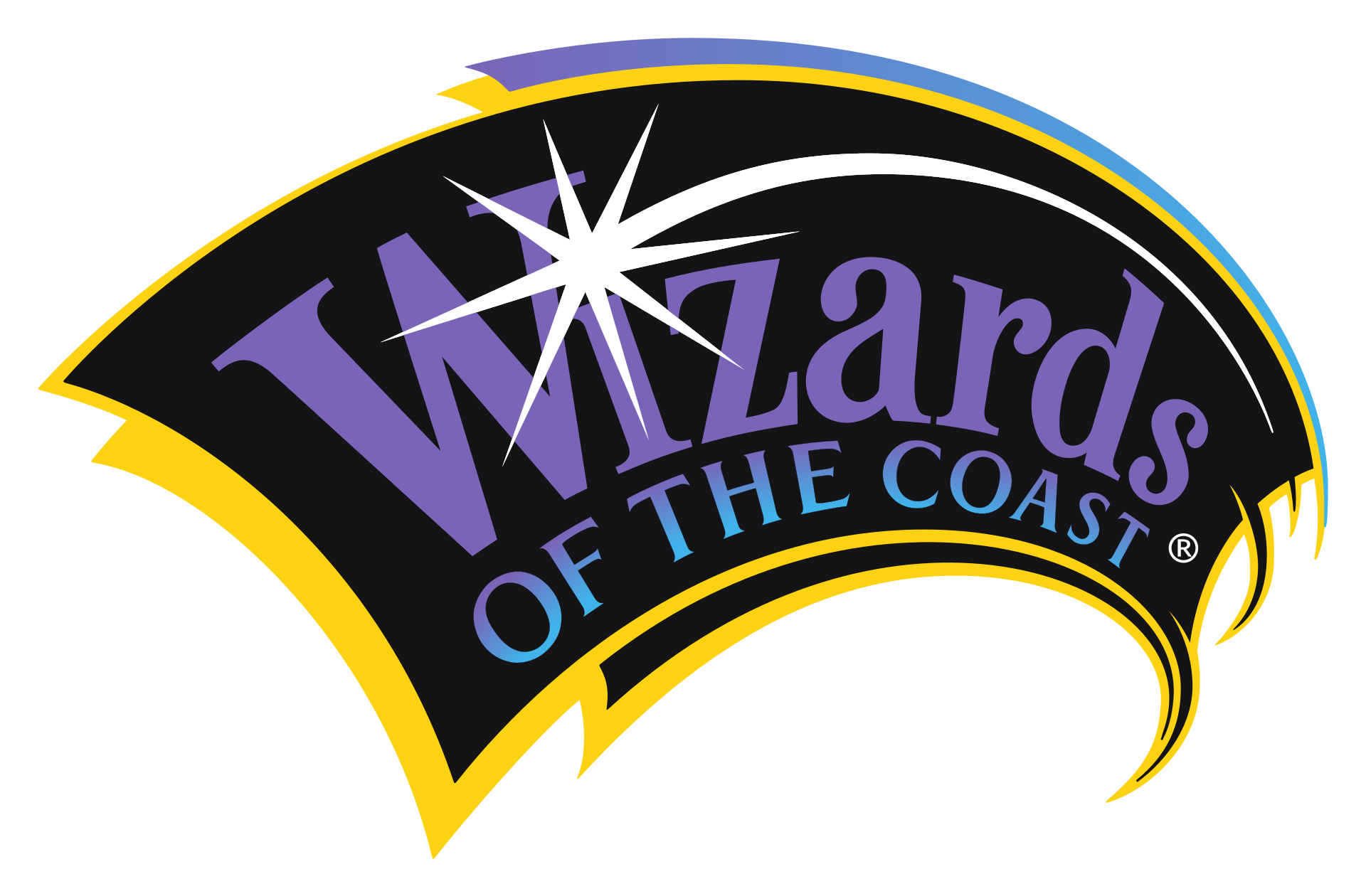
TSR and Forgotten realms, generally D&D rules greatly expanded my gaming experience, and laid the foundation for integration into the world's hick culture. Russia did not have any D&D accessibility in the 1990s, unlike the USA. No one knew what it was - D&D and what the worlds were. And it was only through books and computer games that I was able to join an important cultural layer, which, of course, I do not regret, but I am proud of.

About after passing the third part of the EOB I started reading books about Drizzt Do’Urden by Robert Salvatore. But, unfortunately, worthy games about the Dark Elf never came out.
I tried to play the Menzoberranzan, but it was much worse than the Eye of the Beholder series.
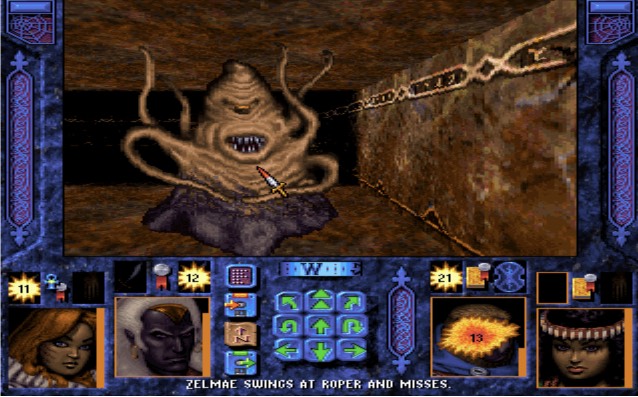
I remember trying to go through Ravenloft and I would probably stick in it for a bit...
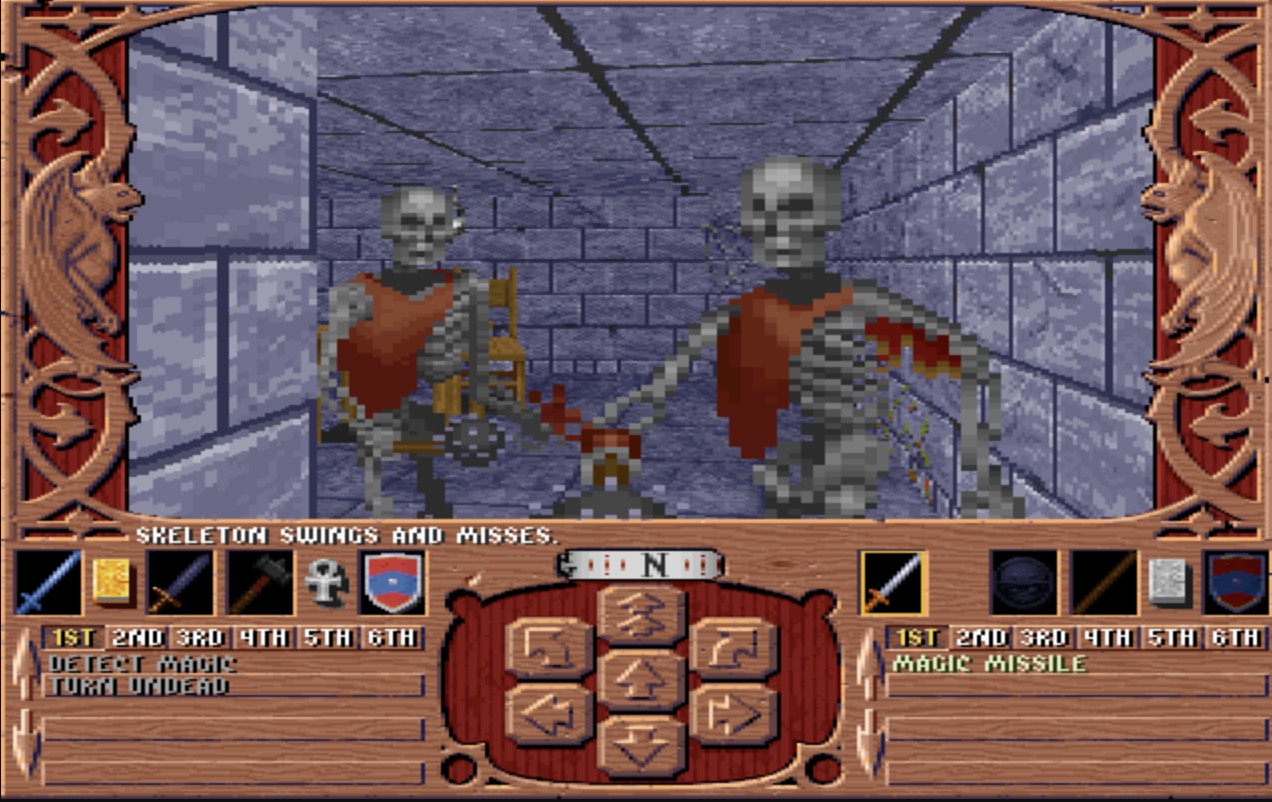
But if by that time in 1998 Baldur's Gate was not released, which once again, a second time changed my idea of the genre.
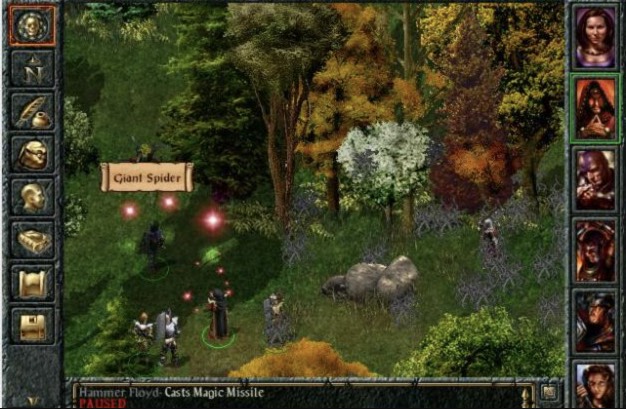
Second approach
Honestly, Baldur's Gate so turned me around and dragged me into Forgotten Realms, forcing me to go through both parts, then both parts of Icewind Dale, that maybe I’t have thought of any other games in this genre if it hadn’t been literature again.
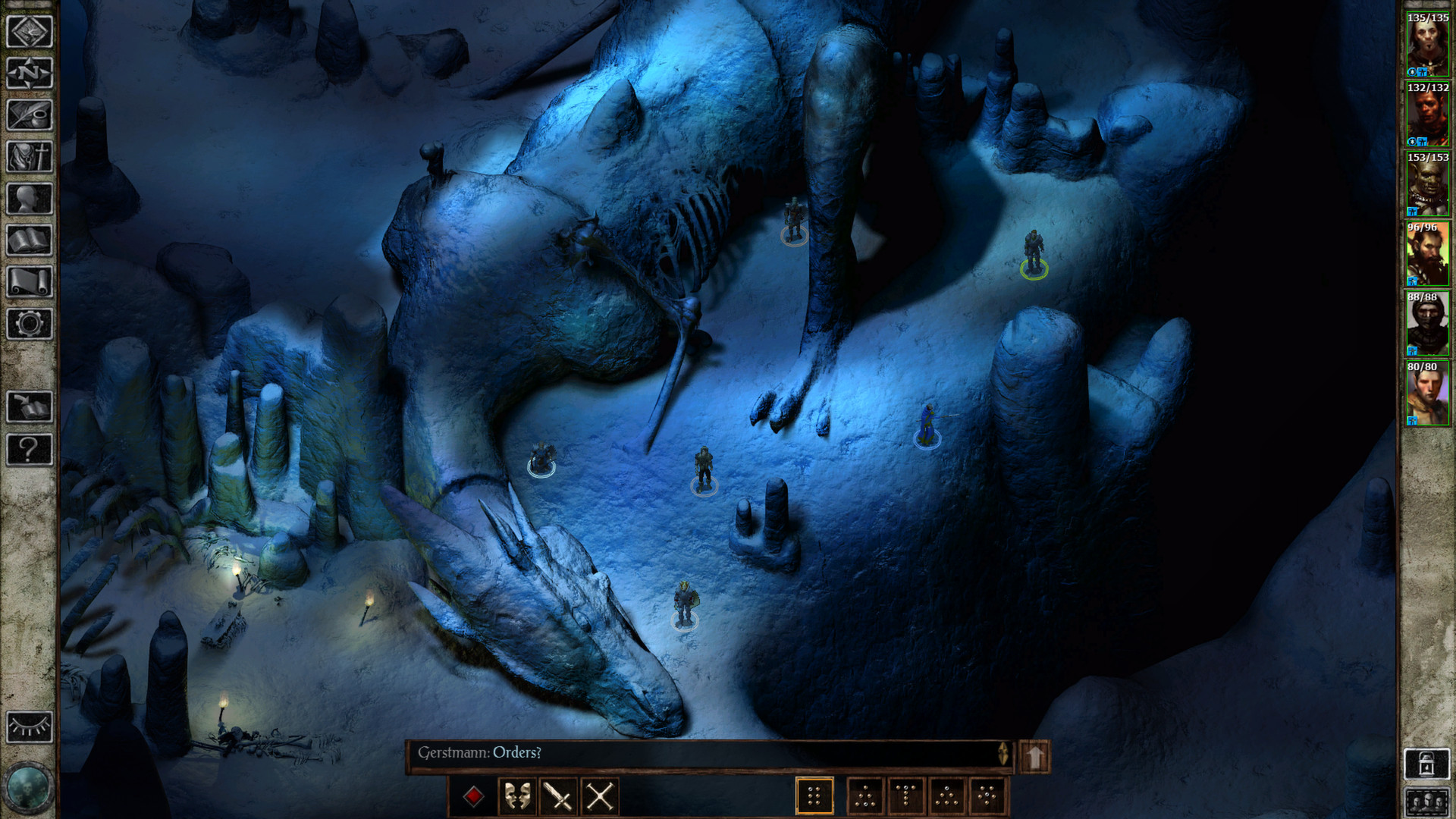
I became very interested to explore further and further what the Baldur's Gate, Waterdeep, Mithral Hall, as well as the magnificent Amn and Neverwinter look like. I found at the "Olympic" flea market two worn-out volumes of Kate Novak's "Curse of Azure Bonds" and "Pool of Radiance" by James Ward's "Pool of Darkness" by Jane Cooper Gong.
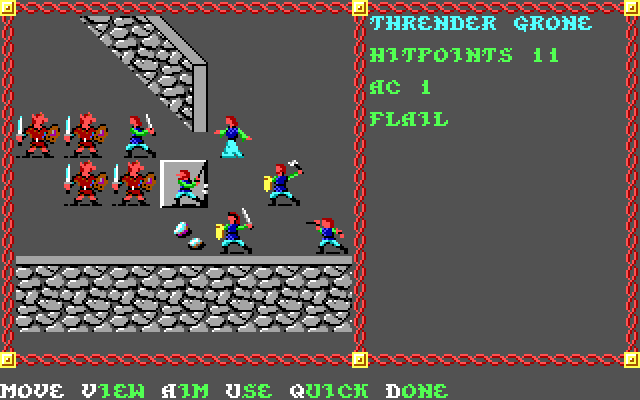
Of course, I could not but want to turn to the origins of the genre: to play in the Pool of Radiance, but here played again the factor of moral obsolescence of the game (especially in the background of BG and ID), that I never exceeded myself. It was replaced by Wizardry 8 and Wizards & Warriors.
Wizardry 8
This is the latest game in the classic Wizardry series, and in all respects it is the culmination of everything that makes this series so remarkable. The game was released in 2001 by Sir-Tech, and it represents an epic adventure in the RPG genre.
The game takes place in the world of Dominus, where the cosmic god of chaos, Dark Savant, is trying to find the secret of Ascension Peak. Your group of adventurers, known as "Dark Savant's party", travel through the universe in search of three powerful artifacts. Your mission is to find these artifacts and use them to access the Ascension Peak and contact the cosmic gods.
Wizardry 8 offers you a huge open world to explore, hundreds of tasks and a deep, sophisticated battle system. You can create your own group of different races and classes, each of which has its own unique abilities and skills.
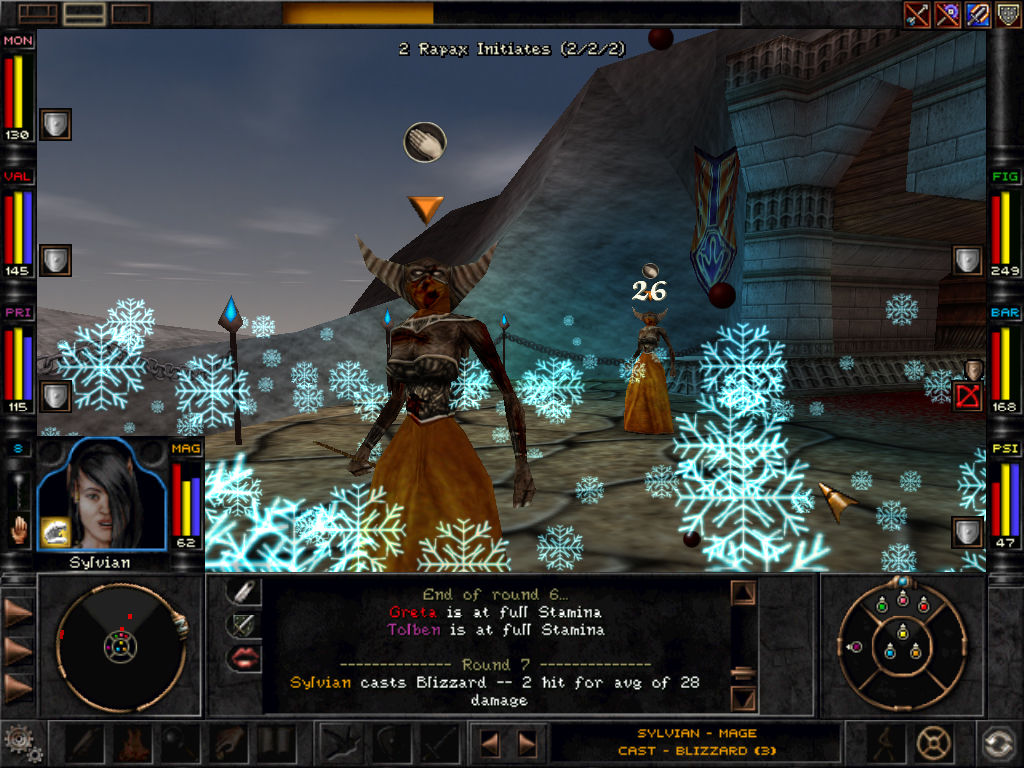
Wizardry 8 became like an EOB for me on highlights, I passed it with the same pleasure as the masterpiece from Westwood. Despite the fact that the era of party RPGs from the first person began to go back to the past, the game brought for me an immersion in the present 3D, with very juicy picture and sounds, with a consistent plot and verified puzzles and difficult solutions.
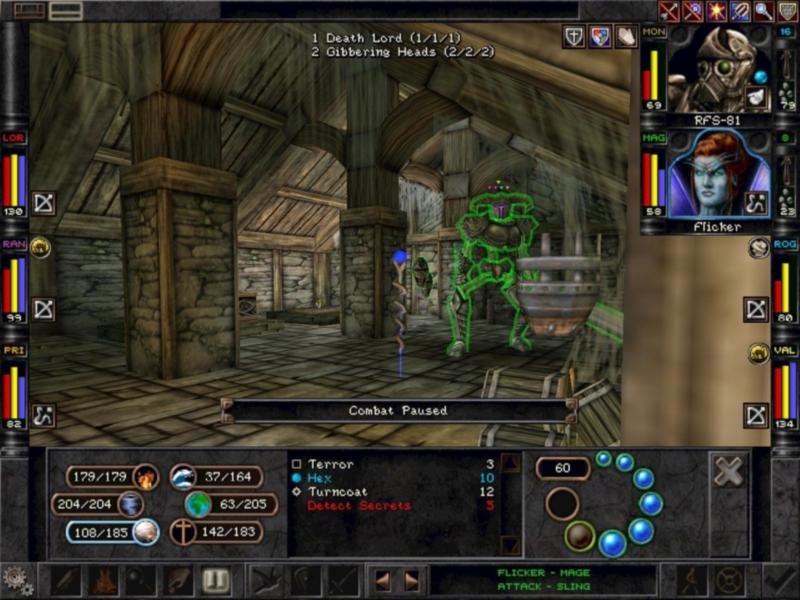
Yes, once again I would like to point out that for me Wizardry 8 is the masterpiece of the genre, the quintessence of how to make games correctly, guide the player and create difficulties for him, without descending to grind and self-repetition. But, to be honest, literally a year before that, the game came out with more interesting mechanics and more thought-out physics, namely...
Wizards & Warriors
It was released in 2000 by Heuristic Park. The game combines elements of classical and modern gameplay, offering a unique experience for fans of the genre.
Wizards and Warriors is set in the fantasy world of Daventry. The kingdom is in danger, as the evil wizard Malkil has kidnapped the princess and cast a spell of darkness over the land. You play as a powerful hero named Kuros, who embarks on a dangerous journey to save the princess and restore peace in the kingdom. Your mission is to fight evil forces, solve puzzles and explore various underground areas.
Wizards & Warriors offers you a vast world to explore, with many different locations, from castles and caves to forests and mountains. The game also has a unique fighting system that allows you to use different strategies and tactics.
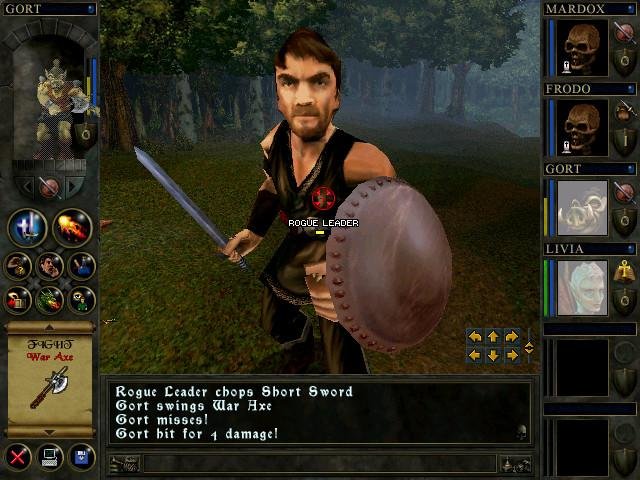
The fighting at W&W felt fresh, more dynamic and more diverse. Rather, the battles were more interesting from a tactical point of view, the puzzles felt more personally. Yeah, but, in the story, the atmosphere Wizardry 8 was better anyway. It was fairly easy for me to compare the games, as I played both games at the same time, approximately in late 2001 - early 2002, after Baldur's Gate 2. Today I remain in my opinion that these are some of the latest, and the best RPG in the genre.
Missed milestone
Fans of the genre are probably expecting an answer from me to the question why I missed two key universes for the genre, namely Might & Magic and The Elder Scrolls. There's a simple answer: I don't like these universes. Yeah, now I'm ready to take the hool and hear at my address that I have D&D of the brain, but yet to these franchises I have a completely different attitude.
Might and Magic
Yes, the series passed me at its peak, just like Ultima. The base of the series was released before 1994, and at the time of familiarization with the genre had time to noticeably obsolete in moral and graphical terms. This does not mean that I judge games by graphics, but when there is a choice a child is more interested in new things, or things in which he lives in his imagination and surroundings. The subsequent parts were released in 1998-2000, when the world was ruled by isometric RPGs. And in its niche, even the 2000 Day of the Destroyer, part 8 of the series looked both gameplay-friendly, and visually not as powerful as Wizardry or Wizards & Warriors.
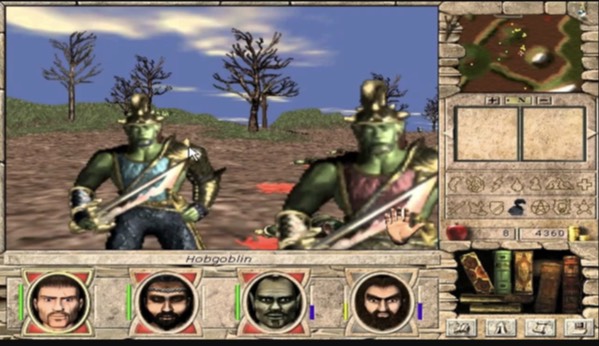
Despite this, in high school, in 2002-2003, I played the seventh and eighth parts, and I couldn't help playing because I loved Heroes of Might and Magic crazy. But, here we have to make a reminder - none of the campaigns I passed and didn't want to happen. I played in separate scenarios and created new scenarios myself, we exchanged scenarios with a classmate, made our company - it was interesting. I specially finished the book "Heroes of Might and Magic" by Anna Gurova, read it in a couple of evenings, but also did not penetrate. And yet, I was interested in listening to my classmate's stories, as if I was watching an exciting stream on Youtube or Twitch.

In general, the plot of the series did not fascinate me at all, although I am interested in it with a full universe, with pleasure watched and waited for reviews of Alexander Krop. For me, as you understand, the plot component, the proximity of the world is very important for the motivation to go through games and read books. And here she, unfortunately, was and remains great. Not mine, I'm sorry.
The Elder Scrolls
I met this series when Daggerfall was released in 1996. De-facto The Elder Scrolls is not a representative of the genre “party rpg” to be present on this list. Nevertheless, of course, the mechanics are very close to them. In addition, the game at the time of release, that is, at the moment of the fingerprints of the pirates, was terribly delayed.
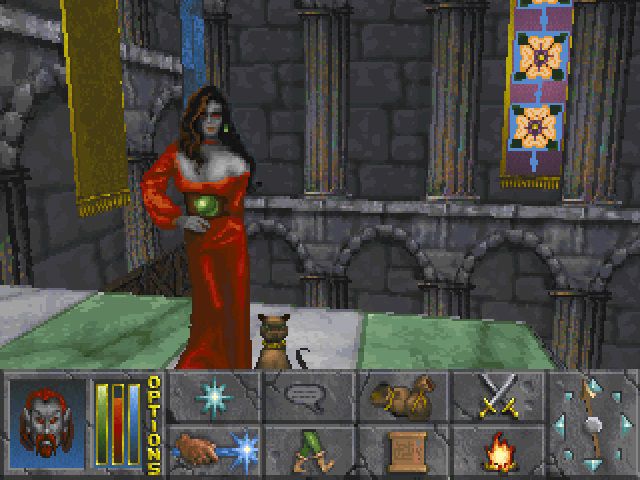
Given the fairly high entry threshold, the breachability of the game, as well as the deliberately inflated game world, the lack of a clear narrative, as a consequence caused my rejection. For me, the game felt like a broken defect, empty and unnatural. However, all the Bethesda's games in this series remained for me: huge worlds in which I do not believe, yes, the possibility of “living in the game”, but for me this game is not played. It can be lived, for some reason to walk and beat out objects and read kilometers of in-game text ("books"), which does not relate to the plot and the life of the player.
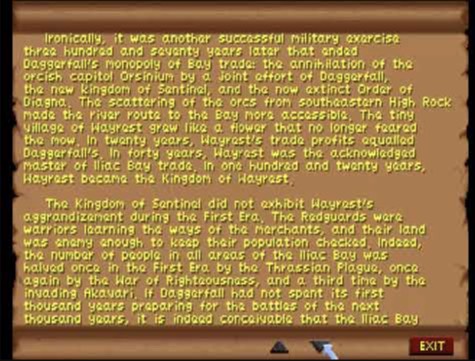
My criticism also focuses on Morrowind, and subsequent Oblivion and Skyrim. I suppose somebody might like this approach when a person enters the body of a Dovahkiin and begins to live in hoops, to create their own damn universes, but no, no, and again not. For me, RPG is first and foremost a group adventure - involvement in the world, the characters, the canve of the story, and not just having a player in it.
Our Time
Time doesn't spare anyone. And the years that followed were not productive for me in terms of going through RPG games. Initially, this was due to the fact that FPS took over the industry, replaced by numerous open-world actions and survivors. In such a world, hard-to-do with such relicts, which must be dealt with, apart from RTS and RPG have gone to the past, leaving only room for enthusiasts and small indie projects. I regret to miss Pillars of Eternity and the Divinity series in the genre of isometric RPGs, supported only by one powerful and radiant Larian Studios, and the games to think transformed into large-scale Total War and Crusaders Kings. But, in general, since the beginning of zero in the genre of party RPF nothing remarkable has come out. Dungeon crawler has been transformed into simplified indie mechanics, for example, this is very noticeable in the remarkable Darkest Dungeon.
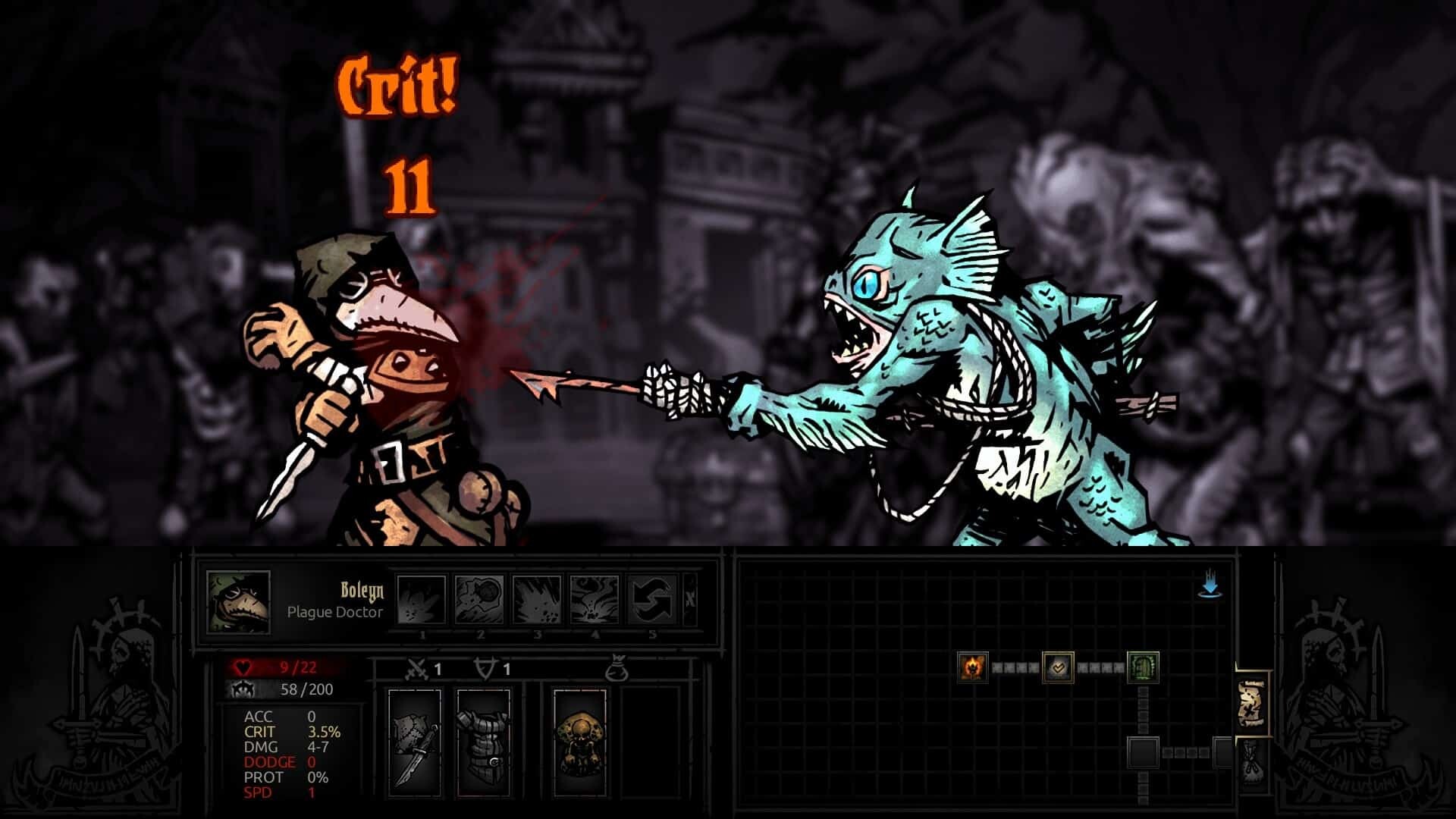
It can be said that they are some kind of evolutionary continuation of the genre. They offer players to explore the underground, fight monsters and control a team of heroes, but do so in a more stylized and simplified form. Rather than focusing on sophisticated mechanics and strategy, these games often focus on atmosphere, art and storytelling. Or they're turning things over, like Iratus.
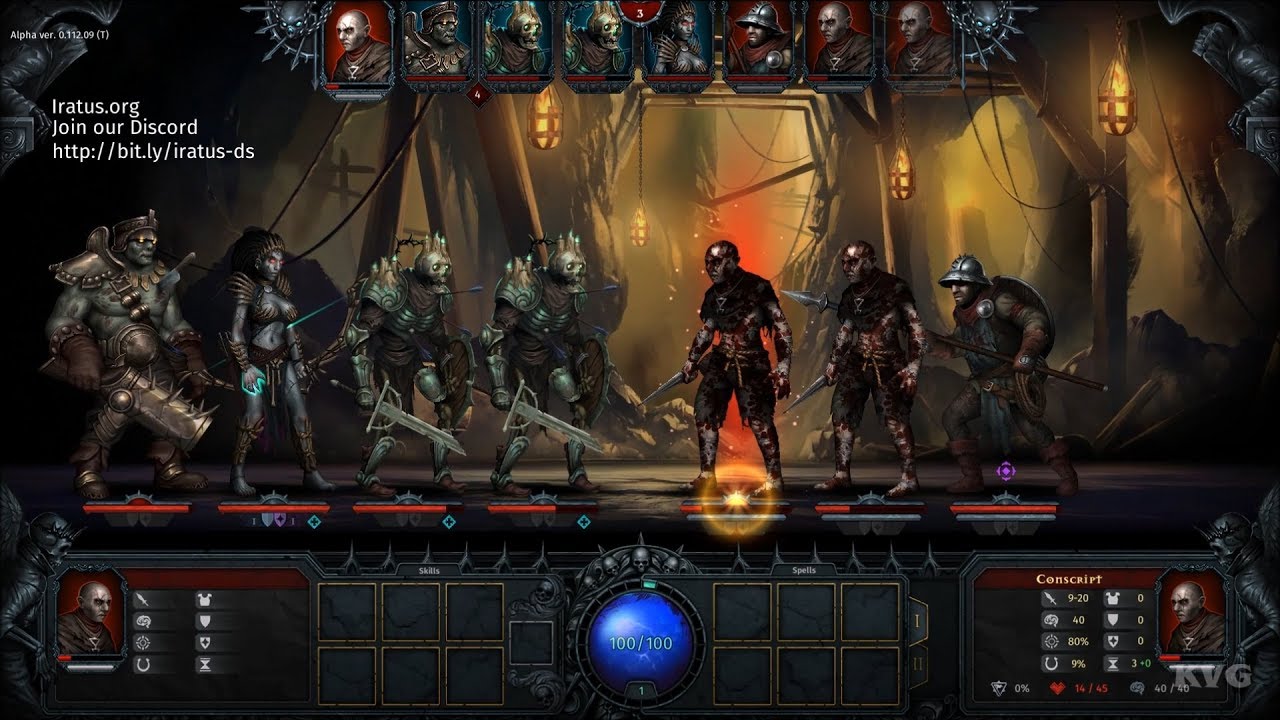
Nevertheless, it was a discovery for me that real diamonds can be found in the midst of emptiness. During this summer vacation, in the mid-day sunshine of the ultraviolet light, I was going under the air conditioner and turning on the laptop with the game. For the holidays I chose a game that was recommended to me by a great immigrant, skimmer, D&D lover and dungeon crawler...
Legends of Grimrock 2
I missed it at time when it was released. And I don't know anything about the first part of the game, but the second one struck my heart.
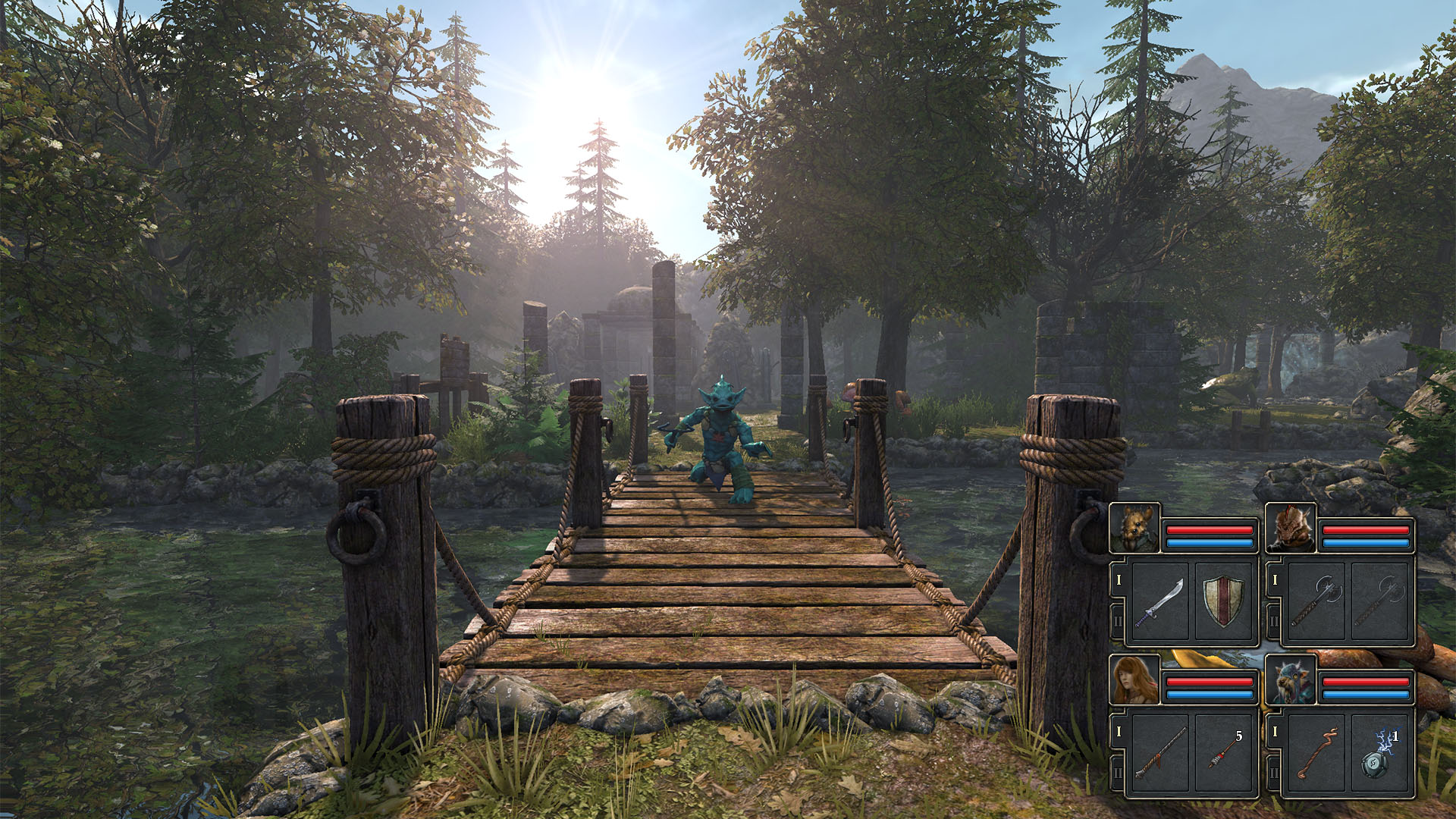
It's the same feeling of mysteries and mysteries, fermenting labyrinths and avoiding monsters, only with a face on Unity. So familiar, native and warm that directly takes for the soul - is it not the coast of swords, where the heroes go? Yes, even in the menu there is a setting to disable the drawing of the card - and draw it, as in childhood, in a notebook in a cell. The sensation of research, the growth of characters, the complexity of puzzles and the increase of pleasure in their resolution - as bright as in childhood. In general, Legends of Grimrock, in addition to a few battles - the game is not so much about pumping and battle, but about solving puzzles - with plates, traps, mazes, teleports, and enemies - each type of enemy makes sense not to meet face to face, but also to find its own key, ranging from the composition of the group of adventurers, weapons to behavior in battle.
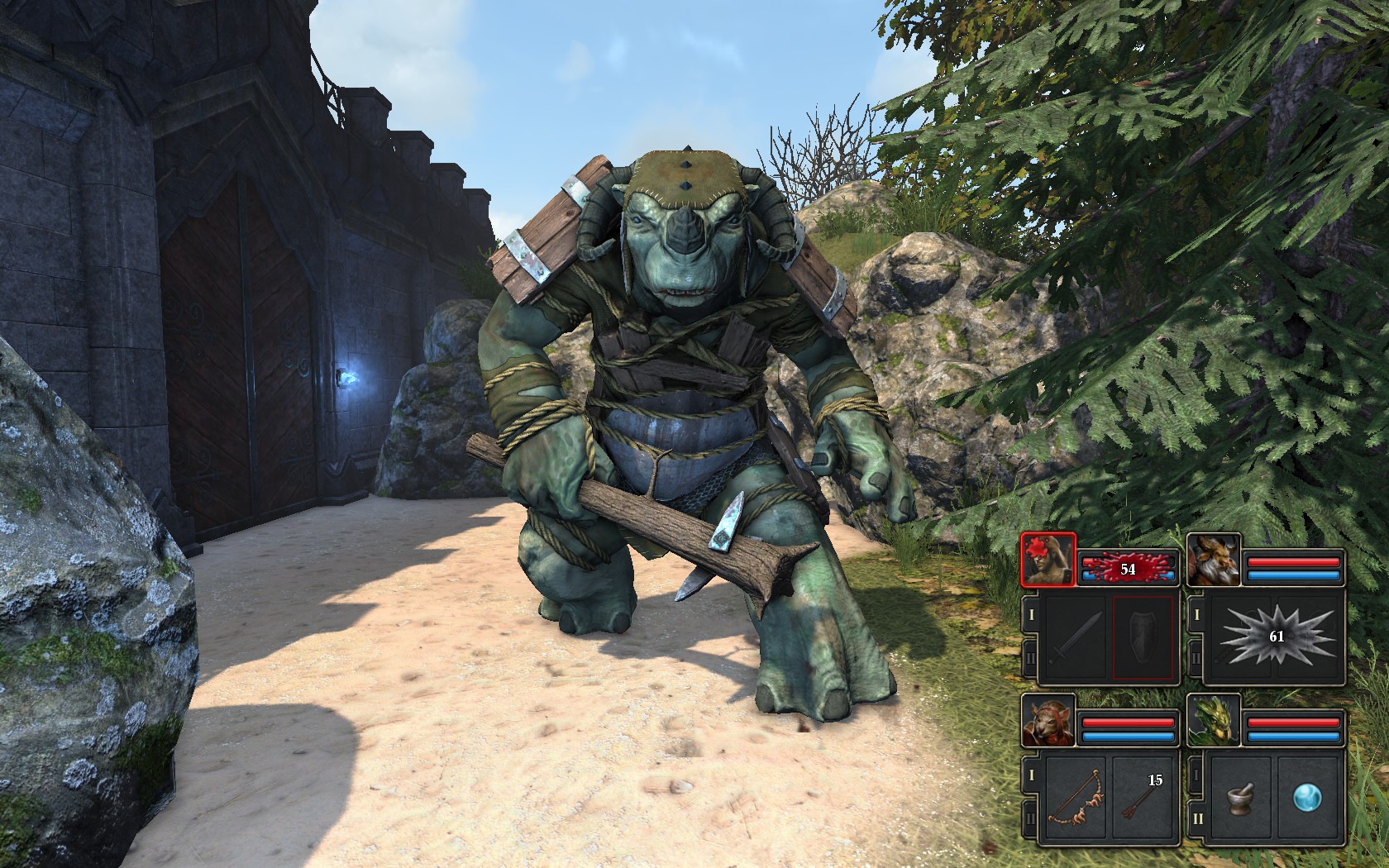
In the process, I remembered most of the puzzles with food plates, on which the spider had to be driven, or the puzzle where it was necessary to accomplish the “path of faith” along the magical bridge that arises under my feet, and quite painful scripted moments, when on the cemetery out of the graves horde of zombies, with which you have to survive somehow. And of course, a touching and controversial (not)real ending, which is not very clear what exactly to consider true. But there's no spoilers. If you love old-school RPG - then you obviously should not miss this diamond.
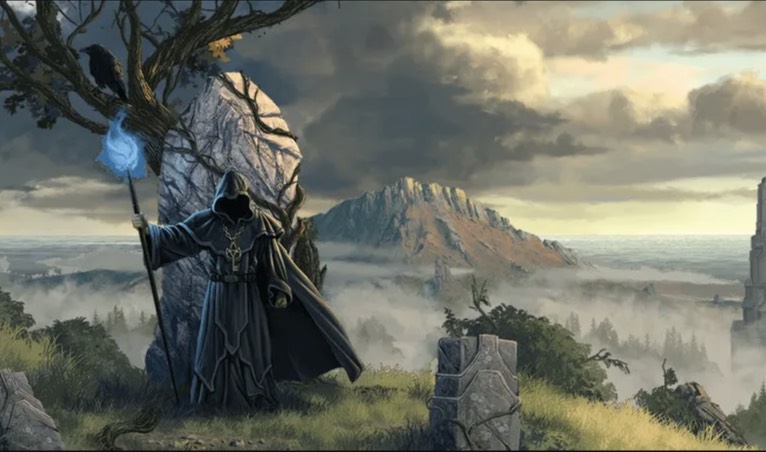
While I was writing this article, I decided to go for a little bit of what else I could miss in the genre, and unfortunately, I was able only to draw attention to Operencia - The Stolen Sun, and partly Vaporum - Lockdown (which is also not quite a party game).
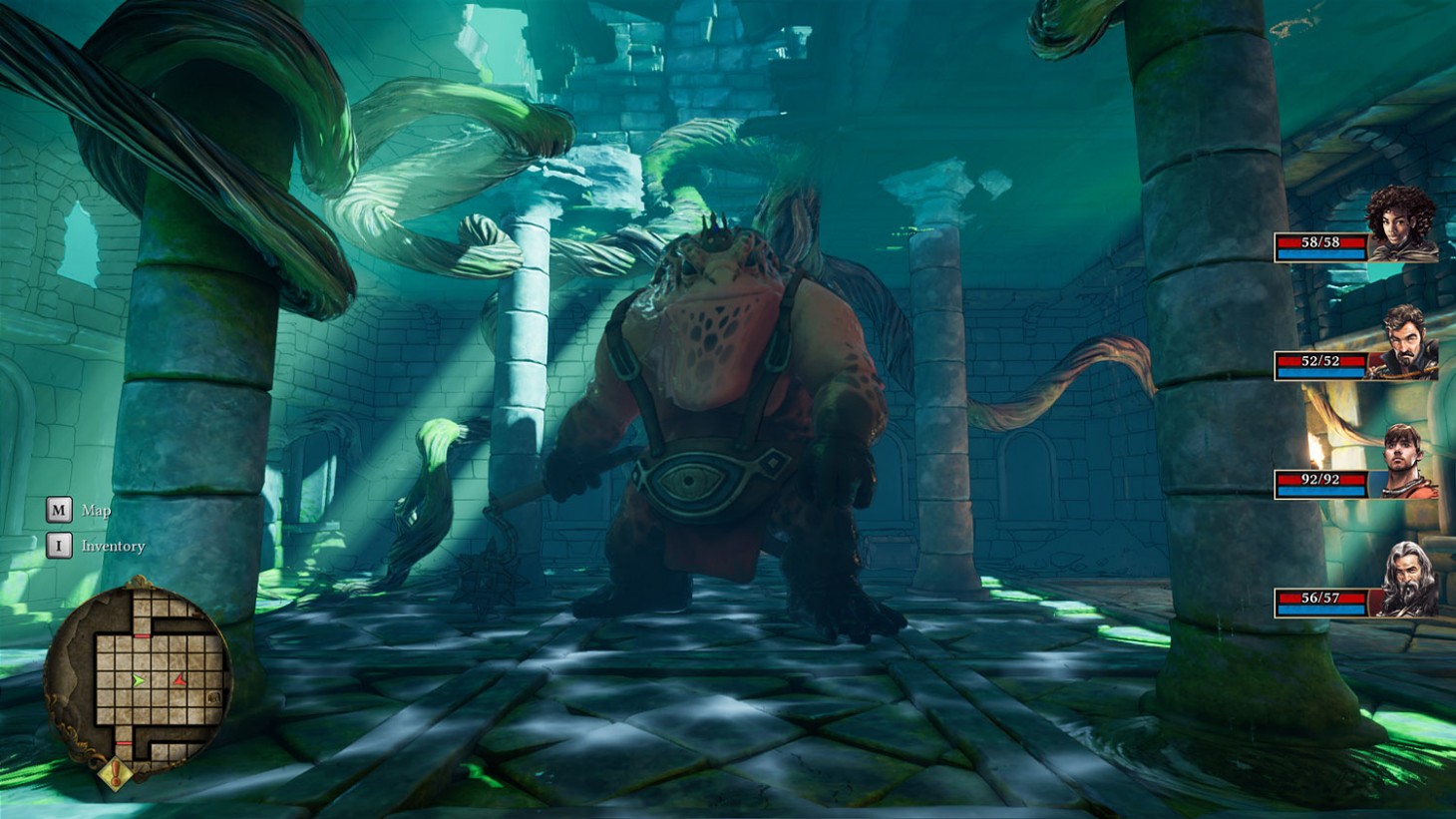
I don’t stick to the concept of “not playing, but criticizing”, so, I can only hope that if there is inspiration and request, then you can and should get acquainted with the games, what I’m going to do when there is free time.
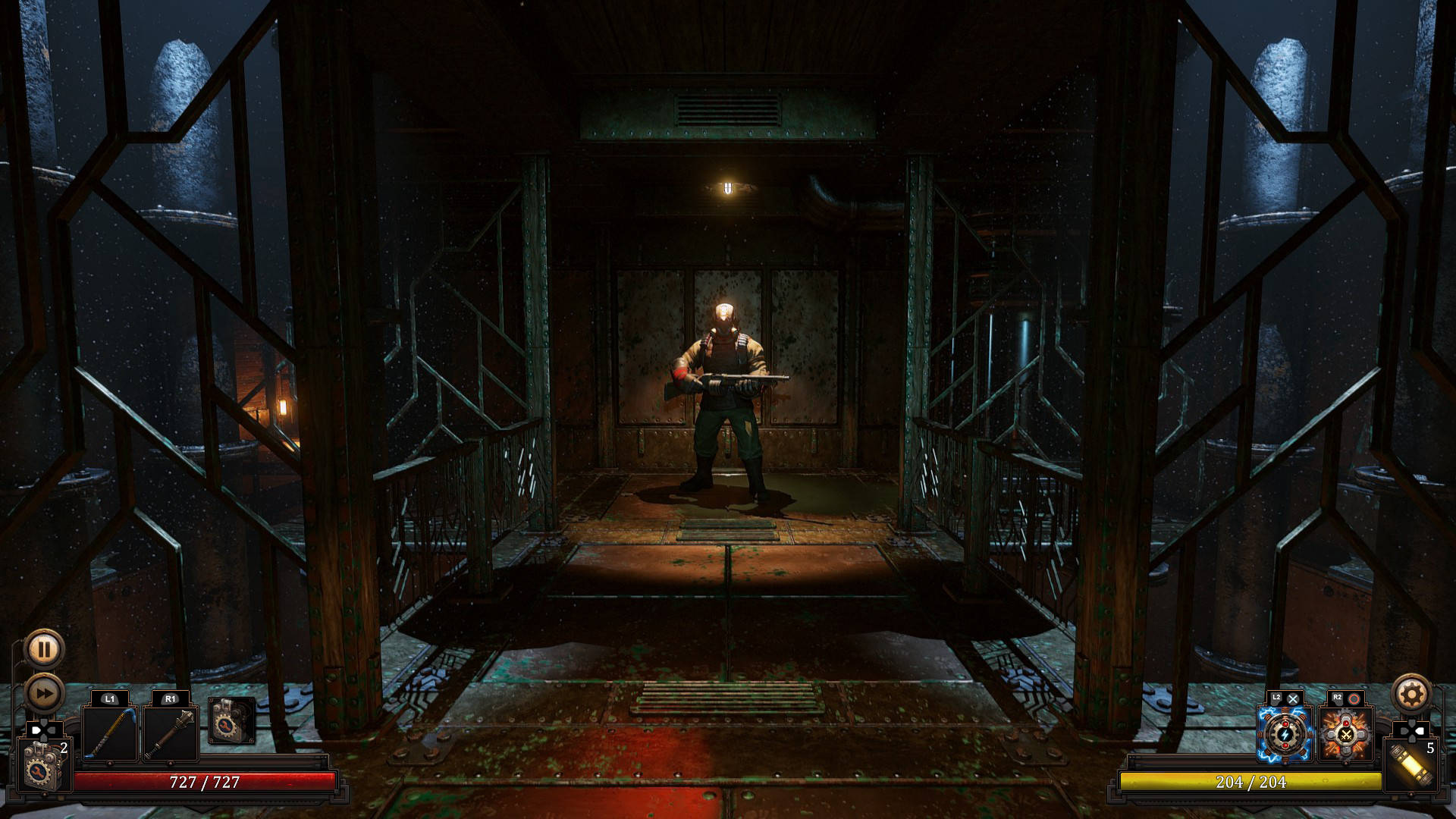
On the other hand, a very small number of games of the genre of party RPG from the first person, maybe well - time passes, the world is changing along with technologies and requests, and if you want something like that, that is, the old, still unopened classic. And rare diamonds, like the creations of Larian or Almost Human Games only shine brighter in the darkness of dark underground...